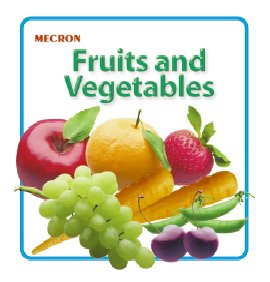Whole-Food Supplements

Advanced Science Combined with Benefits of Nature.
Dear Reader,
Good nutrition is a major concern for you and your family. And it should be: Studies indicate that many of us do not receive the daily nutrients recommended for good health. In fact, 85 percent of Americans don't meet the daily recommendations! Whole-food supplements are fast becoming the convenient answer for a nutrient-poor diet, providing the kind of natural nutrition your body was meant to live and thrive on. From improved vision to less risk of cnacer, see why all-natural, whole foods can make a difference in your health...today and for years to come.
If you've ever made a fruit salad, then you likely know the chef's trick of sprinkling a little lemon or lime juice over the fruit to keep it from turning brown. In many ways, antioxidants are like that lemon juice. By consistently "sprinking" your body with antioxidants, you can prevednt your body from "browning."
Atioxidants are the anti-agers of the nutrient world, working to protect your body from free radical damage. Free radicals are highly reactive froms of oxygen that are missing an electron. When they come into contact with normal molecules, they try to steal an electron, damaging the healthy cell and its DNA. Antioxidants work to counteract the damage caused by free radicals.
You Truly Are What You Eat.

According to USDA, the Food Guide Pyramid, the National Cancer Institute and the American Heart Association, in order to ensure that you are getting plenty of antioxidants, you should consume at least two to five servings of fruits and three to seven servings of vegetables per day. That's a total of five to twelve servings of antioxidant-rich foods every day!
But the unfortunate truth is that 85 percent of Americans don't meet the daily recommendations, with 3 in 5 people not even reaching a combined total of five fruits or vegetables in any given day. Fortunately, there is an answer.
Produce Selection
You wouldn't just walk into a grocery store or farmer's market and pick up a piece of fruit or head of lettuce withut checking it out, would you? Of course not. You'd first determine if it was organic, if it was fresh or beginning to rot, and you'd check to make sure it was the proper color, etc. Well, you should choose your fruit-and veggie based supplement with the same care.
First and foremost, any product you choose should be made entirely from whole foods and organically grown, ideally in deep, nutrient-rich soil. Next, you'll want to be sure it offers a wide range of phytonutrients, enzymes and micronutrients. While there are a number of fruits and vegetables that provide this range of protection, it would be nearly impossible to eat all of these fruits and veggies every day. Your best bet is to find a high-quality product that contains all of them.
When choosing a fruit-based supplement, look for one that contains the following foods:
Cranberry; Papya; Pineapple; Strawberry; Blackberry; Bilberry; Apricot; Mandarin Orange; Plum; Blueberry; Grape; Cherry; Cherry; Rasberry; Orange
When choosing a vegatable-based product, be sure it contains:
Parsley; Kale; Spinach; Brussels; Sprouts; Asparagus; Broccoli; Cauliflower; Beet; Carrot; Cabbage; Garlic; Tomato
Fabulous Fruits, Beneficial Berries
Although fruits and veggies both offer antioxidants, as a rule they offer different types. Fruits and berries often have more vitamin C, while veggies offer more carotenoids and vitamins A and E. Let's take a look at some of these amzing fruits and berries in more detail.
Incredible cranberries
Cranberries and cranberry juice have been shown to have a myriad of health benefits, the most  well-known of which is preventing urinary tract infections. But did you know that cranberries have also been found to prevent stomach ulcers, thanks to its ability to reduce the adhesion of certain bacteria-including E. coli and Heliobacter pylori-in your gut?
well-known of which is preventing urinary tract infections. But did you know that cranberries have also been found to prevent stomach ulcers, thanks to its ability to reduce the adhesion of certain bacteria-including E. coli and Heliobacter pylori-in your gut?
French studies have found that cranberries even have an "anti-adhesive effect" on bacteria in the mouth and may protect you against plaque builup and gum disease. And, thanks to a rich store of polyphenols and the antioxidant compound proanthocyanidins, cranberries may reduce your risk of developind cardiovascular disease by increasing you HDL "good" cholesterol levels.
Papayas-Digestion Heaven
Like cranberries, the exotic papaya has antibacterial properties and can also protect you against E. coli. But even more impressive is papaya's enzymatic capabilities, due in large part to its  stores of papain-a critical protein-digesting enzyme.
stores of papain-a critical protein-digesting enzyme.
Enzymes are an integral part of your energetic makeup. Not only do they digest, transport and transform nutrients in the food you eat, but they are responsible for bringing the resultant evergy to every cell, tissue and organ in your body.
Even something as basic as the beating of your heart is dependent on enzyme activity. In fact, there's strong evidence that raising your enzyme levels can help to balance your entire immune system.
But let's not forget about the digestive component of the equation. Papaya has been used to restore beneficial bacteria into your intestines, thereby increasing nutrient absorption and promoting better digestion. In fact, papaya has been used for centuries to treat over acidity and borderline ulcers.
In addition to papain, papayas contain other important phytonutrients, including arginine, amino acids, calcium, potassium, folic acid, beta-carotene and fiber.

FOR MORE INFO, OR TO PLACE AN ORDER, PLEASE E-MAIL ME AT:
MARSHAWILLIAMS4@YAHOO.COM I WILL BE GLAD TO ASSIST YOU. BE WELL, HEALTHY, AND HAPPY!!
Thank you
MARSHA WILLIAMS


0 Comments:
Post a Comment
<< Home